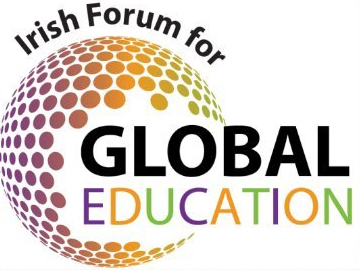‘The right to education operates as a multiplier. It enhances all other human rights when guaranteed and forecloses the enjoyment of most, if not all when denied.’
Katarina Tomasevski in ‘Education Denied – Costs and Remedies’ Zed Books 2003
IFGE supports the right to education as the starting point in advancing the Education 2030 Agenda and SDG 4 goals. But what do we mean when we say that ‘education is not a privilege, it is a human right?’ In this blog we want to explore this question, which is at the heart of our mission and consider how we can support the realisation of this right. We are aware that making rights real is a huge challenge globally. As with all human rights work, it is not a rapid process so we have to keep working at it.
Primarily, what the ‘right to education’ implies is a legally guaranteed process for all without any discrimination, where states have the obligation to protect, respect, and fulfil this right. When this does not happen there have to be ways to hold states accountable for violations or deprivations of the right to education.
The right to education is guaranteed in International human rights law. The Universal Declaration on Human Rights, adopted in 1948, proclaims in Article 26: ‘everyone has the right to education’. Since then, the right to education has been widely recognised and developed by a number of international normative instruments elaborated by the United Nations, including the International Covenant on Economic, Social and Cultural Rights (1966, CESCR), the Convention on the Rights of the Child (1989, CRC), and the UNESCO Convention against Discrimination in Education (1960, CADE).
The right to education has also been reaffirmed in other treaties covering specific groups (women and girls, persons with disabilities, migrants, refugees, Indigenous Peoples, etc.) and contexts (education during armed conflicts). It has also been incorporated into various regional treaties and is included in most national constitutions. But translating the right to education from abstract principles into workable guidelines is a process that needs a lot more attention to realise the intention behind these treaties.
There are good reasons why we need to activate the rights we have signed up to in relation to education. Both individuals and society benefit from the right to education and it is fundamental for human, social, and economic development. It is also a key element to achieving lasting peace and sustainable development. It is a powerful tool in developing the full potential of everyone and ensuring human dignity, and in promoting individual and collective wellbeing.
IFGE believes that the right to education is fundamental for a number of reasons. Firstly, it is a ‘multiplier’ right which helps to lift marginalised groups out of poverty and gives them a sense of their real potential. It is an essential means of realising other rights and furthermore it contributes to the full development of the human personality as a member of society.
However, we also need to be aware of how violations of the right to education frequently occur both through direct action of State parties (act of commission) and through their failure to take steps required by law (act of omission). Though the vast majority of countries have ratified international treaties that recognise the full right to education, it is still denied to millions around the world due to lack of resources, capacity, and political will. There are still countries that have not integrated the right to education into their national constitution or provided the legislative and administrative frameworks to ensure that the right to education is realised in practice. Most of the children and adults who do not fully enjoy the right to education belong to the most deprived and marginalised groups of society which are often left behind in national policies.
The key question, therefore, is what can be done to realise the right to education and where we might focus in relation to this. If individuals know their rights they are in a better position to claim them, but frequently they are unaware of these rights. Then the implementation of these rights must be monitored and data sought on deprivations and violations. IFGE advocates and campaigns for the full implementation of the right to education and holding states accountable. There must be a response and remedy when there are violations of these rights. Above all we have to pay attention in our own country and work with diverse educational organisations to ensure there is awareness of these rights and constant advocacy around their implementation. This also means that in both development and emergency situations the right to education remains at the forefront and is not relegated to a secondary consideration.
See Right to Education Initiative
https://www.right-to-education.org/resource/right-education-handbook


